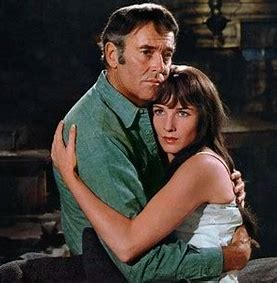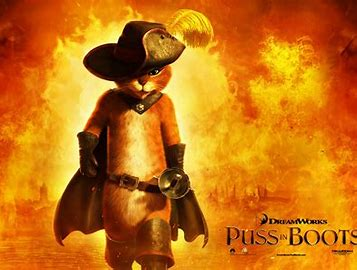Welcome To Hard Times (1967)
Directed by Burt Kennedy
Starring Henry Fonda, Janis Rule, Kenan Wynn, Aldo Ray, Warren Oates
With my lazy, no-working afternoons I've been watching more movies lately. Saw a depressing 1967 Western yesterday based on a short story by E.L. Doctorow, who used to be one of my favorite authors in the 80s (Billy Bathgate, Loon Lake, Ragtime). It's called Welcome To Hard Times with Henry Fonda.
This was one of those stories where I was like, ???? There is a rickety little one-horse, nothing town on the plains in the Old West with one saloon, one store, and one cemetery. Fonda plays Blue, the reluctant mayor who had kicked around the country doing this and that until he decided to settle there. The town is in the valley below a busy mine, and the miners stream down the mountain on weekends to drink, carouse, and dally with the handful of hookers.
But then Aldo Ray, "The Man From Bodie," shows up out of the plains, and he's just a wordless, murderous hellraiser who guzzles whiskey as the saloon keeper (Lon Chaney Jr.) just tries to jolly him up. This man is so crazy violent that he has no patience for corks and such, he just smashes the tops of the bottles to pour alcohol into his maw. He then assaults, tortures and kills one of the girls, smashes up the saloon, beats and shoots people for fun. For no reason.Blue decides to stay on with Molly and the newly fatherless boy Jimmy while the rest admit the town of Hard Times is over and leave. Then Zar (Keenan Wynn) shows up on a wagon with a tent, liquor, and some goodtime girls, looking to drive up to the mine. Blue explains that the wagon would never make it up the mountainside and convinces him to stay in Hard Times and help rebuild the saloon and other parts of the town. Soon the storekeeper's brother arrives, unaware that his sibling has exited the scene, and Blue convinces him to stay and open the store again. A drifter, Warren Oates, shows up in the undertaker's found wagon and stays.
Blue tells the newcomers that Molly is his wife so she can live with him and heal, and not get put to work in the saloon. Except Molly is bitter, wants to leave, is convinced the Man From Bodie is going to return, and calls Blue a coward and not a real man every chance she gets. I'm like, Damn Girl! Give It A Rest! She's like, Do you have any idea what that horrible man did to me? We can only imagine. She doesn't understand Blue, even as she is falling for him. She and Blue then get into a battle for young Jimmy's soul: Molly pushing him to "be a man" and become a gunslinging trigger-happy revenge seeker (it was his pa who was killed), while Blue wants him to become educated, analytical, forgiving and well-grounded. This, I assume, is the crux of the film's message, which is, Does revenge ever achieve justice? How can peace ever be achieved when folks are so embittered that they continue to retaliate for the wrongs done to them? When does "turn the other cheek" become the guiding principle in a lawless world?
With many of the buildings rebuilt, the fun-seeking miners and the stagecoach come through as usual and for a while, things are popping again in Hard Times. Relationships are cemented. Despite Molly's bitterness, she, Jimmy and Blue have formed a nuclear family. The new tent saloon does well. But then the seasons turn and the townspeople suffer through a hard winter. The mine closes temporarily, threatening all their livelihoods. And then, as soon as things warm up, The Man From Bodie shows up again, terrorizing the town just as he did before.
I couldn't believe my eyes, like the minute he rode into town they should have had Warren Oates, who was supposed to be the new sheriff not to mention a sharpshooter, gun the guy down before he even got off his horse. But they didn't. They let him drink a gallon of liquor, rough up and kill one of the new girls, and burn down the saloon -- AGAIN. When Oates finally goes into action, he mistakenly kills Keenan Wynn, blecch.
Finally, finally, when The Man From Bodie runs out of bullet, Blue is able to shoot him down. And to shut Molly up, he hauls the dying maniac over to his house and throws him on the table. But then the Maniac opens his eyes, Molly goes for the knife but Maniac grabs her. Young Jimmy blasts him dead with a shotgun but of course catches Molly right in the gut with some buckshot. She's done for. Oh well, hookers always pay for their sins in the movies. Besides, she was never going to be happy with Blue because of her belief that those sins from her past mark her as no good for love. Oh the irony. Still, the film ends on a semi-promising note, with Blue and young Jimmy surveying what's left of the town from the cemetery hill and imagining a new future.
This flick was a complete downer and headscratcher. The immediate relief that The Man From Bodie is gone is tempered -- at least in my mind -- by the miserable deaths of all these folks, and the fact that Blue noted mid-picture that the barren lawless landscape of the West seems to breed up these types of violent characters. So there's the specter of another Man From Bodie, or Man From Somewhere, showing up to burn it all down in the future. It's Sisyphean, an endless purgatory of building up the town only to see it decimated, over and over.The film tries to end on an upbeat note, but it's a Pyrrhic victory (what's with me and the Greek references today?). Seems that many have to die in this atmosphere so just a few can live. But at what cost? And yet, doesn't every town and everybody face Hard Times?





























